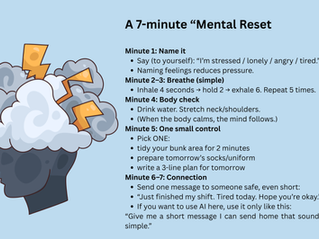Human Rights Day 2021
- IMEQ CENTER

- Dec 10, 2021
- 3 min read
Updated: Sep 12, 2023
This year’s Human Rights Day is dedicated to Equality, focused on reducing inequalities and advancing human rights: “All human beings are born free and equal in dignity and rights.” The principles of equality and non-discrimination are at the heart of human rights. Equality, inclusion and non-discrimination, in other words are the best ways to reduce inequalities. In honor of this year’s Human Rights Day, we wish to think about equality and how it applies in the maritime and shipping world.
Human rights and human rights violations, have become quite important topics since the beginning of the Covid-19 pandemic. The maritime industry is responsible for transporting more than 80 percent of global trade of goods, such as automobiles, bulk commodities, chemicals, wood products, iron and steel, garments and shoes, and consumer goods, toys, electrical appliances, oil and gas, pharmaceutical products and food. COVID-19 related measures imposed by Governments, including travel bans, embarkation and disembarkation restrictions or suspension in the issuance of travel documents, have severely strained the working conditions in the global shipping sector, resulting in a humanitarian and safety crisis.
Hundreds of thousands of seafarers are trapped on ships as routine crew changes cannot be carried out, while hundreds of thousands are stranded on land, prevented from re-joining ships. Those stranded on ships are being denied their human rights, including their rights to physical and mental health, to family life, and to freedom of movement, and are often forced to work beyond the default 11-month maximum period of service on board, as established by International Labour Organization (ILO) Maritime Labour Convention, 2006 (MLC, 2006). This is resulting in cases that could amount to forced labor.
The UN General Assembly, the Secretary General and UN agencies have called on governments to designate seafarers as “key workers” and to honor their commitment to seafarers, especially as it relates to medical care, length of service and repatriation. Under the UN Guiding Principles on Business and Human Rights (UNGPs), while governments have the duty to protect the human rights of seafarers, businesses have a distinct responsibility to respect their rights.
What are the responsible practices that businesses’ should demonstrate in order to respect the human rights of seafarers during these difficult times?
We must start by ensuring seafarers’ labor rights, health and safety. Of course, this does not only apply to the situation that the pandemic has brought us in, but it should be our priority regardless. Respecting the labor rights and ensuring that seafarers work in a healthy and safe environment is extremely important. How would we implement that?
No seafarers should be or have been on board for a continuous period of more than the default 11 months maximum period of service (derived from the MLC, 2006).
Vessel operators are limiting any avoidable crew contract extensions.
Seafarers are not to work beyond the expiration of their contracts without their consent, highlighting that to do so may be grounds for considering such work as forced labour.
Vessel operators are upholding the right of seafarers to both fair and free repatriation (as required by MLC, 2006).
Moreover, companies must advocate and support necessary crew changes. Companies must engage with business partners who exhibit flexibility and accept route deviation requests from shipping companies for the purpose of facilitating crew change and work actively and constructively with the maritime industry to help facilitate crew changes in accordance with international standards regarding seafarers.
We must also take into consideration the importance of mental health. In a highly demanding seafarer work environment, mental health can play a key role in the well-being of an individual as well as the overall group culture, group morale, job performance, team cohesiveness, and team performance, with dire consequences such as an increased risk for accidents, decreased alertness, poor performance, and hazy decision making, and sets the ground for economic loss. Consider offering individual counseling sessions for seafarers. This process will play a key role in the wellbeing of seafarers.





































































































Comments